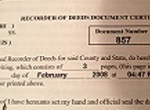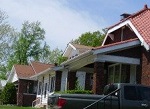A Good Homeowners Association Solves Problems Quickly and Calmly
Last Reviewed: June 17, 2024
A homeowners association, often abbreviated as an HOA, is commonly put in place through the CC&Rs (covenants, also called master deed) governing a condominium association or other subdivision association where some property is owned in common.
The set-up varies widely from state to state, and from attorney to attorney. But if you find yourself on a homeowners association board, or at odds with one, you need to learn a bit about the selection of the board members and how to train them to do a better job.
We who write for this website believe firmly that homeowners associations need to be administered in a calm, deliberate, and restrained manner in order to gain the respect and cooperation of residents. In our experience, it's when the HOA board decides to dig too far into the details and into silly rule-making that chaos ensues. Thus it's important to have a balanced representation of skills on the board. Here are our tips.

First, we recommend that you choose people who have business experience and financial acumen. One or two board members should have construction, structural engineering, or housing renovation experience in a setting where they have responsibility for financial details.
Individuals who have never administered a long-range project may underestimate how much maintenance situations will change over future years and not set aside enough reserves from the association fees to cover future expenses.
The result of setting the association fees too low is a nasty backlash when the monthly HOA fee has to be raised dramatically, even though sometimes the homeowners association board members responsible have long vanished from the scene.
Second, if you
are in the type of development where neighbors are really fussy about
how things look, choose someone with some urban design talent as well.
An architect, landscape architect, or urban planner could be really
useful to the board. However, make sure you balance the design professionals with an engineer and an attorney just to keep design standards and picky rules from getting out of hand.
Third, choose people who are truly likely to live in the development over the long term and are dedicated to its success.
Those for whom your particular development represents a second or third place to call home are unlikely to serve well even if they have the professional skills we have been advocating.
Fourth, the community and the board need to deal promptly with any personality and governing conflicts that arise. If you are a part of a board that squabbles frequently, and that seems to be true of many HOAs, ask that mediation services be purchased.
The threat of professional intervention might actually bring the bickering parties back into line, but if not, you're protecting your most valuable financial investment.
If you're on the receiving end of the bullying that seems to happen in a number of homeowners association boards, think about whether the toll is worth it. Resign if you must.
Peace and civility on the board is very important, and after several serial resignations, the rest of the community will begin to understand where the problem lies. At least we can hope so.
Fifth, our experience indicates that the wisest choices for HOA boards are people who are dedicated to transparency with the homeowners and who welcome productive input from all of them. The homeowners associations where board members meet secretly, behind closed doors, at unannounced times tend to be the same ones that develop a problem with a president or treasurer who becomes a little dictator. Allowing residents to attend meetings, and ideally even to speak at meetings within limits, tends to produce reasonableness and less extreme positions on what constitutes a violation and what "punishments," in the form of fines or liens, should be.
A truly useful resource is HOA Leader. Many other courses and expensive manuals are available to help board members, but certainly don’t be afraid to ask questions from your city planner and from professionals who might live in your community.
A well-governed homeowners association is a thing of beauty, and in every way comparable to a well-run governmental code enforcement agency. A good board can enforce the spirit of the deed restrictions without going overboard. (This document could be called the master deed or the CC&R's, or any number of variations in your particular state and association.)
However, if your association leadership isn’t up to the task, it can be a nightmare as you uncover everything from simple incompetence, to failure to deal with important but unpleasant news, to outright fraud.
Whether you simply live in an association-governed community or are a board member yourself, be generous about providing your board with the necessary resources to learn the job.
That doesn't mean trips to Las Vegas twice a year either! But it might mean a course or organization membership to understand how to make future-oriented decisions.
We have to consider another possibility as well. Many readers have written to us that their association has become power-mad and is overly zealous in enforcing covenants and fines, beyond what the spirit of the covenants requires. The situation becomes even more intolerable if the board will not open its meetings to residents and refuses to share information. Often this occurs because of one person who takes power too seriously. When this has occurred, the rest of the board members and residents must find the courage to replace the director or directors who have become too eager to exercise authority. Some of the suggestions in the next section would be helpful in this situation.
When the Homeowners Association Does Not Exist or Function
We are adding this section to the page because we have received a number of questions and comments from our website visitors who say that they live in a development where an HOA was never set up when the developer exited the scene, or that the HOA does not have a board or the board has ceased to meet.
It's not too late for current property owners to set up an HOA to administer and follow through on the covenants. Without one, enforcement of the covenants often is impossible, or it is unfairly left to an individual to sue for enforcement. Other legal problems can arise as well, not the least of which is the inability to maintain the common areas or cope with the departure of a privately owned golf course. The first stop for interested property owners would be an attorney's office (ideally the one that drafted the covenants, if that person is still in practice locally). After that, a community meeting is in order.
If the HOA exists but does not meet as a body or does not have a working board, current owners need to remedy that situation as well, for the reasons we just cited above, and more. An individual living in such a development should obtain some legal advice. If you are lucky, you will have an attorney living in the subdivision or development who can serve that role without charging anyone. A single property owner could set up an informal meeting to discuss the situation, but when a group is ready for the serious step of forming the association, ask the attorney to preside to make sure it is done correctly.
Lastly, if you cannot activate or reactivate the HOA and its board, there is nothing wrong with a condo development or a subdivision development that owns common ground deciding to form an ordinary neighborhood association. We have many materials about how to do this on this website. This type of organization doesn't have the same quasi-legal muscle as a homeowners association, but still it can take advantage of opportunities and resolve many common problems.
We also suggest that groups of people who feel that their HOA leaders are tyrannical and out of control could consider starting a neighborhood association to become more organized in dealing with neighborhood issues. Perhaps the neighborhood association can then serve as a vehicle for an effort to realize a more inclusive, transparent, financially responsible, and reasonable HOA. Even if that does not happen, the neighborhood association can serve as a place where residents can obtain advice and emotional support in dealing with the HOA.
Related Reading
We often suggest other pages on this website that will be helpful in delving deeper into the topic at hand, but if you are an HOA board member, you really should read the pages below. On the deed restrictions questions page, you will see a list of all of the visitor-submitted questions we have received and answered. Browse through that list to see what might pertain to your situation. Even a quick look at the titles there is a sobering experience in what can go wrong in a homeowners association or the problems that various covenants raise for residents.
- Making and Keeping a Good Community >
- Homeowners Association > Homeowners Association
Join GOOD COMMUNITY PLUS, which provides you monthly with short features or tips about timely topics for neighborhoods, towns and cities, community organizations, and rural or small town environments. Unsubscribe any time. Give it a try.




